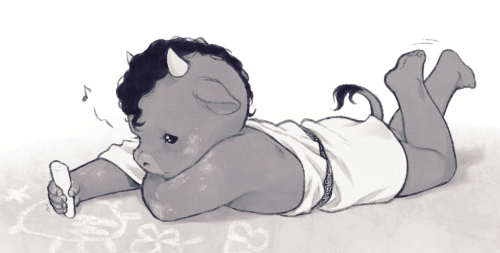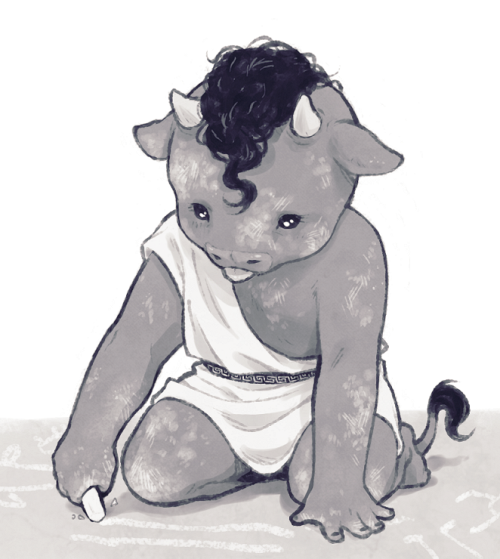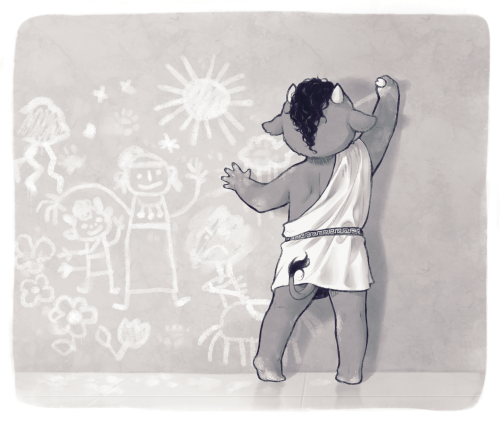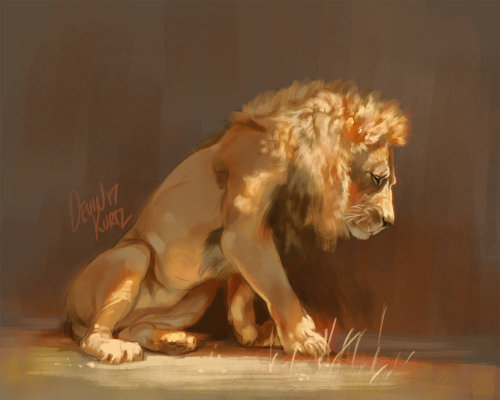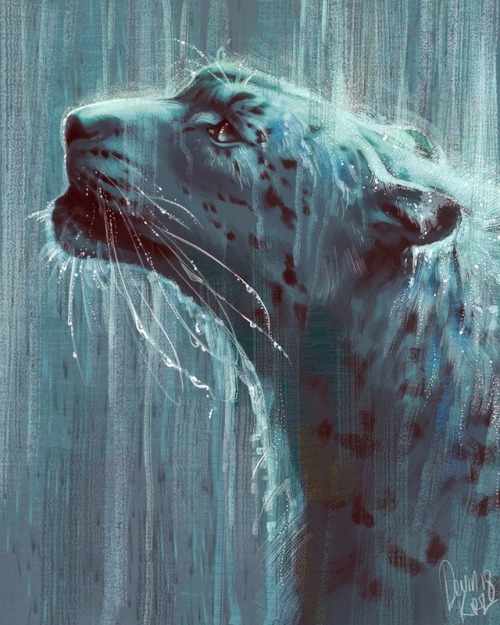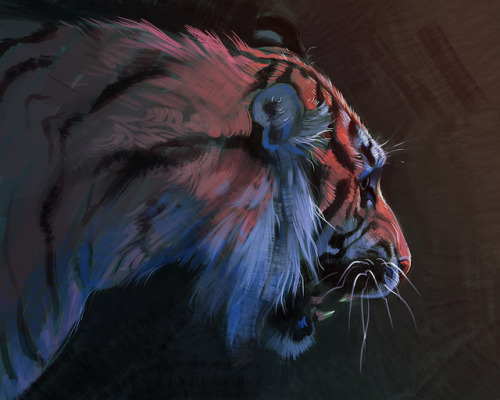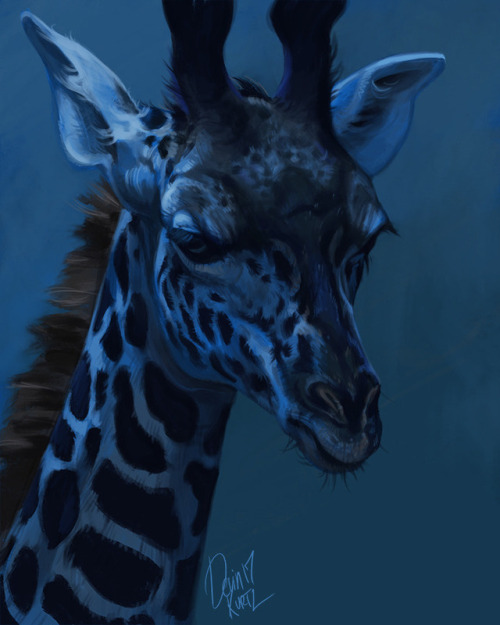WHY IS WRITING IS SO FUCKING HARD?
WHY IS WRITING IS SO FUCKING HARD?
Ten types of fuckery that stop you from writing the thing:
1. Imposter syndrome
You think you're not good enough or everyone else is better than you and you're just winging it AKA ye olde imposter syndrome bullshit. Yeah nah you're fine. No really, you're exactly where you need to be right now, and you'll keep getting better and better so long as you don't stop. Chances are, if you're filled with doubt about your abilities it means you've actually improved to the point where you can really start to understand what makes good writing. It means you know where you wanna end up and goshdarn it you're gonna get there.
Read this: 4 tips to kick imposter syndrome in the face and also genitals
And also this: How to silence the inner critic
2. Fear of rejection and/or failure
Yeah, us too. It fuckin sucks. BUT. Not all rejections are equal. And rejection is a necessary part of the process. Sometimes it takes a rejection to realise that a story isn't ready. Sometimes a rejection is entirely subjective and has ZERO reflection on the quality of your work. But shying away from the very idea of possibly maybe hypothetically getting rejected is only going to hold you back from even trying. And knowing why you got rejected and how to learn from it is one of the most valuable writing skills.
Read this: The different types of rejection (and how to deal with 'em)
Then read this: How to cope with rejection
And also this: Writing lessons from Groundhog Day
3. Not enough planning / too much planning
Leaping into a new story with nothing but a glimmer of an idea is exciting as heck (and can sometimes be a great way to begin) but at some point you're gonna need some sort of outline or plan to keep you on track. HOWEVER. Planning your story to within an inch of its life can also sometimes be a hindrance - leaving you stuck in the hypothetical stage of the process where your story doesn't quite exist yet (and therefore avoiding the prospect of it sucking). The sweet spot is in the middle. Having just enough of a plan to know where tf you're going, but enough freedom and flexibility to let the story lead the way...
Read this: Planning vs pantsing
Then read this: Five plotting techniques
And also this: The perils of overplanning
4. Your WIP just isn't working
Sometimes things just fall flat. Sometimes you work on the same story for yeeeeears and then it just kinda... dies. Sometimes you have the best plans (see above) and the best intentions and things still don't work out. Sometimes it's just time to move on. And sometimes it's not! Sometimes a story can be revived, fixed or changed. Sometimes you just need time. Sometimes YOU'RE the one that's changed and this isn't the story you need to be writing right now. Many variables. Muchly personal. Read the things below for more advice cos this is a big question:
Read this: What to do when your WIP isn't working
And also this: Give it space - how to grow a story in your head
Or how about this? Editing 101
5. You keep deprioritising it
Ah the irony of writing being the thing you love/want to do most of all AND YET the thing you procrastinate over and avoid and shove to the very bottom of your to-do list all the freakin' time. Maybe it's the comodification of art destroying our freedom to create without pressure. Maybe it's late capitalism sucking up all our available time and energy. Maybe it's a lack of self-belief subconsciously telling us our 'little hobby' doesn't really matter. Maybe it's maybelline. Whatever it is, you have the power to reclaim and revalue your writing. To say, "I'm a fucking writer, goddamnit!" and mean it. To ringfence your creative time so nothing and nobody gets to interrupt it. To do that thing you love.
Read this: Prioritise your writing
Read this: How to write in 30 second bursts
6. Shiny Thing Syndrome
You know that feeling when you're just getting stuck into a writing project and then — SQUIRREL! — you get distracted by another, better, more shiny writing project? Or maybe you're deep in the editing phase and your current WIP just isn't feeling very shiny at all and pretty much ANYTHING seems more exciting? Or you simply can't decide which of the many squirrelly writing ideas to actually start? You, fine writerperson, may be suffering from Shiny Thing Syndrome (STS). But fear not! There are a few ways to combat it, depending on the cause, and most of them involve embracing the squirrel-brain and injecting a bit of fun into your writing, like so:
Read this: Shiny thing syndrome - a writer's malady
Aaaand read this: Get excited about your writing again
And also this: Write like a kid
7. Perfectionism/self-sabotage
Look. Writing is scary as shit. What if someone READS it? What if they don't like it? What if they see into your soul and gain a deeper understanding of you through your words? Writing your truth, being vulnerable, smearing your heart juice all over the page? No thank you. But also, that's where the good shit is, so actually yes please. Just make sure you smear responsibly. And rest assured, even the most 'successful' and experienced writers ALSO feel like this sometimes, so you're in good company. It's just part of the art, bruh.
Read this: Why writing is scary (and why that's a good thing)
Read this: Beginning a story - what stops us starting?
And also this: Get out of your own way
8. The dreaded blank page
Oh godddd the blank page. It should be an exciting palimseset of possibility but is somehow also the most terrifying thing known to humankind. You wanna write something but where to start? HOW to start? You type that first line and immediately delete it. You watch the cursor blinking at you—taunting you—until you just give up and shut your laptop again. It's probably tied up with a bunch of things we've already covered so far: perfectionism, imposter syndrome, fear of failure, maybe a lack of planning or faith in your story or whatever. But it doesn't have to be this way. A blank page IS exciting and full of possibility. We just have to get over ourselves and learn to embrace the unknown...
Read this: Don't fear the blank page
And also this: The moaning method
9. Not enough time/energy/motivation/gnuuuughh
Dude, same x 1000. But you don't have to get up at 5am, do hot yoga, drink a kale smoothie and write a thousand words before sunrise to be a Proper Writer. You don't even have to write every day. But what you can do is hack your writing brain and figure out when, where, how, and why you write most effectively. Then tweak your schedule, your habits, and your attitude to ensure you're making the most of your time. Productivity is a big ol' lie but finding the secret to getting in your own personal writing zone is actual MAGIC.
Read this: Maximise your writing time
And also this: Get in the writing zone
And also unto this: The Writers' HQ Guide to Productivity
10. You're just fucken stuck
Got the writing morbs? In need of some literary sudafed? Stuck as a pig in a poke? Writing is a whole puzzle of a process—and to be honest that's what makes it so fun and exciting and addictive, because your writing brain is hardwired to both create AND solve the wordy puzzles within your story. Sometimes the answer is time. Sometimes it's a second opinion or a fresh eye. Sometimes a totally different approach or just a hefty kick up the bum. But whatever the problem, there IS a solution. You just gotta keep going and trust that you'll find it...
Read this: Troubleshoot your writing - why are you stuck?
And also this: Break through the writing blockage
And also also this: Write yourself into a pit (and then dig your way out again)
~~~~~~~~~~~~~~~
Alright, that's it for today. Now go write, you flithy animals.
(And if we missed anything, stick a question in our ask box or check out the rest of our shit here)
More Posts from Pewpewigotagun and Others
Important Announcement:
April Fools Day (April 1) is one week away. To that end, I just want it known now, well before the day, that this blog will NOT be posting any jump scares, fake announcements, freak-out posts, fake hackings, fake emergencies, fake news, and “gotcha!” stuff on April Fools Day. We’re staying safe and chill around here.
I’m honestly not into April Fools Day, really, unless the jokes are obvious and silly–like Rickrolls and Dad Jokes. Rickrolls and Dad Jokes are just traditional.
for me


Not me listening to the Halloween theme for the 500th time 🗿 nope
Ok how can I NOT repost this?

Mine!
Artwork by GothicQ
Writing x Characters When You Aren’t x, A Masterlist
x: a variable used to represent something unknown.
We’ve seen an influx of questions about how to write stories based around characters of color, disability, non-binary, etc. when the author does not fall into these categories. Rather than have these posts take over the site, we’ve decided to compile a list of resources to help our fellow writers become more educated about writing what they do not immediately know. However, this list is not the end-all-be-all of knowledge; one should always try to learn from someone with first hand experience in any topic. The world is constantly growing and changing, and because of that, there will always be more to learn. The admins at Plotline Hotline want to help writers form respectful, informed, and realistic characters that broaden the narrow range we see in literature today.
*Be wary that some of the topics listed below contain sensitive material. Reader discretion is advised.*
As always, the links I found to be especially apt will be in bold. Topics are listed alphabetically, excepting the “other” section.
Culture
Appropriate Cultural Appropriation
What is Cultural Appropriation? [1,2,3]
Cultural Appropriation Is, In Fact, Indefensible
Voice Appropriation & Writing About Other Cultures
Diversity, Appropriation, and Writing the Other [List]
Disability
Writing Disibilities [1,2,3,4,5]
Guides to Writing Deaf or Hard of Hearding People
National Association of the Deaf - Resources [List]
World Federation of the Deaf
Using a Prosthetic Device
Prostehtic Limbs (Character Guide)
How NOT to Write Disabled Characters
A Guide to Disibility Rights Law (United States)
Timeline of Disibility Rights in the United States
Social Security Disability: List of Impairments, Medical Conditions, and Problems [List] (United States)
How to Write Disabled Characters: An Opinion Piece
Artificial Eye Resources [List][Various]
Adapting to the Loss of an Eye
Misconceptions and Myths About Blindness
Blind Characters: A Process of Awareness
Writing Blind Characters [List]
Types of Learning Disabilities [List]
Diversity
A Guide to Spotting and Growing Past Stereotypes
How to Prepare to Write a Diverse Book
The Diversity of Writing
Why Diversity Matters for Everyone
Writing a Driverse Book [1,2,3,4,5]
Diversity, Political Correctness and The Power of Language
Diversity Book List [List][Books]
Basic Tips To Write Subcultures & Minority Religions Better
Basic Tips to Avoid Tokenism
Gender
GLAAD Media Reference Guide - Transgender
Creating Well-Written Trans Characters
A Few Things Writers Need To Know About Sexuality & Gender Expression
Trans (Character Guide & Bio Building)
A Non-Binary Person’s Guide to Invented Pronouns
Gender Neutral Writing [List]
Keeping a Trans* Person a Person
Suggestions for Reducing Gendered Terms in Language [Photo]
How to Review a Trans Book as a Cis Person
Writing Characters of Different Genders [List]
Understanding Gender
Gender Spectrum Resources [List]
Gender History
Illness
Writing Chronic Illness [1,2]
The Spoon Theory - Also pertains to disibility
About HIV/AIDS
Sexually Transmitted Diseases [List]
Sexually Transmitted Infections
Sex and Gender Differences in Health [Study]
All Chronic Illness Topics [List]
Coping with Chronic Illness
All Cancer Types
A Day in the Life of a Home Health Aide/Health Coach
Fiction Books With Chronically Ill Main Characters- Not Cancer [List][Books]
Neurotype (Including Mental Health)
Writing an Autistic Character When You Don’t Have Autism
Depression Resources [List]
What to Consider When Writing Mental Illness
Stanford Psychiatric Patient Care
Inpatient Psychiatric Questions and Tips
Don’t Call Me Crazy [Documentary]
(Avoid) Romanticizing Mental Illness [1,2]
A Day in the Life of a Mental Hospital Patient
State-run vs. Private Mental Hospitals
Mental Disorders
Mental Hospital Non-Fiction [List][Books]
National Institute of Mental Health - Mental Health Information [List]
Writing Autistic
What Causes PTSD?
Remember, Remember: The Basics of Writing Amnesia
ADHD Basic Information
What is a Learning Disability?
What is Neurotypical?
Race
Writing Race: A Checklist for Authors
Transracial Writing for the Sincere
Is my character “black enough”
White Privilege: Unpacking the Invisible Knapsack
Challenge, Counter, Controvert: Subverting Expectations
Writing With Color: Blogs - Recs - Resources [List]
Writing People of Color (If you happen to be a person of another color)
7 Offensive Mistakes Well-Intentioned Writers Make
Description Guide - Words for Skin Tone
Religion
Religion in Novels: Terrific or Taboo?
How to Write a Fantasy Novel that Sells: The Religion
Writing About Faith And Religion
From Aladdin to Homeland: How Hollywood Can Reinforce Racial and Religious Stereotypes
Sexuality
Understanding Sexual Orientation and Gender Identity [List]
Writing Gay Characters [1,2,3]
American Civil Liberties Union - LGBT+ Rights
LGBT+ Rights by Country or Territory
History of Gay Rights
Gay Rights Movement
LGBT+ Culture
Gay Myths and Stereotypes
LGBT+ Studies Web Sites [List]
LGBTQ Youth Issues
LGBTData.com
Overview of Gay and Lesbian Parenting, Adoption and Foster Care (United States)
Other
How Doctors’ Offices—and Queer Culture—Are Failing Autistic LGBTQ People
Five Traps and Tips for Character Development
Developing Realistic Characters
I hope that this list will provide topics a writer may not initially think to research when writing. If there are any resources that you think would be fitting for this list, please let us know! We want to have as many helpful sources as possible to maximize learning opportunities.
Stay educated,
xx Sarah
Hello!! Just a question, Where do you watch Lego Monkie Kid?
I watch the season 1+2 on this site https://m.wcostream.com/anime/monkie-kid
As the season 3+specials I was lucky to keep the playlists on YouTube !








𝓵𝓪𝓭𝓲𝓮𝓼 𝓪𝓷𝓭 𝓰𝓪𝔂𝓼 𝓲𝓷 𝓪𝓻𝓶𝓸𝓾𝓻; 𝓪 𝓬𝓸𝓷𝓬𝓮𝓹𝓽
-
 drowxiv liked this · 2 weeks ago
drowxiv liked this · 2 weeks ago -
 storycaster liked this · 3 weeks ago
storycaster liked this · 3 weeks ago -
 the-lionsheart liked this · 4 weeks ago
the-lionsheart liked this · 4 weeks ago -
 frostedfjell reblogged this · 1 month ago
frostedfjell reblogged this · 1 month ago -
 hererafjastori liked this · 1 month ago
hererafjastori liked this · 1 month ago -
 abigor567 liked this · 1 month ago
abigor567 liked this · 1 month ago -
 starlantern reblogged this · 2 months ago
starlantern reblogged this · 2 months ago -
 lotterywildcard liked this · 2 months ago
lotterywildcard liked this · 2 months ago -
 tiredcatlady34 liked this · 2 months ago
tiredcatlady34 liked this · 2 months ago -
 farlongerthan5ever reblogged this · 2 months ago
farlongerthan5ever reblogged this · 2 months ago -
 praisetheplatonicism liked this · 2 months ago
praisetheplatonicism liked this · 2 months ago -
 sowearecleariamhere reblogged this · 2 months ago
sowearecleariamhere reblogged this · 2 months ago -
 sowearecleariamhere liked this · 2 months ago
sowearecleariamhere liked this · 2 months ago -
 cxnsdellaj reblogged this · 2 months ago
cxnsdellaj reblogged this · 2 months ago -
 cxnsdellaj liked this · 2 months ago
cxnsdellaj liked this · 2 months ago -
 a-noble-dragon reblogged this · 2 months ago
a-noble-dragon reblogged this · 2 months ago -
 a-noble-dragon liked this · 2 months ago
a-noble-dragon liked this · 2 months ago -
 riddleturner liked this · 2 months ago
riddleturner liked this · 2 months ago -
 nonehouseswithleftgrief liked this · 2 months ago
nonehouseswithleftgrief liked this · 2 months ago -
 barefooted-wanderer reblogged this · 2 months ago
barefooted-wanderer reblogged this · 2 months ago -
 bekkaa liked this · 2 months ago
bekkaa liked this · 2 months ago -
 bookishblerb liked this · 2 months ago
bookishblerb liked this · 2 months ago -
 idkimoutofideas reblogged this · 2 months ago
idkimoutofideas reblogged this · 2 months ago -
 penna-nomen reblogged this · 2 months ago
penna-nomen reblogged this · 2 months ago -
 thesaintcollective reblogged this · 2 months ago
thesaintcollective reblogged this · 2 months ago -
 penna-nomen liked this · 2 months ago
penna-nomen liked this · 2 months ago -
 lillytalons reblogged this · 2 months ago
lillytalons reblogged this · 2 months ago -
 zenith-of-gahhh reblogged this · 2 months ago
zenith-of-gahhh reblogged this · 2 months ago -
 sweetycups reblogged this · 3 months ago
sweetycups reblogged this · 3 months ago -
 aevelynx reblogged this · 3 months ago
aevelynx reblogged this · 3 months ago -
 shabootldoo liked this · 3 months ago
shabootldoo liked this · 3 months ago -
 themadmaiden liked this · 3 months ago
themadmaiden liked this · 3 months ago -
 ekami10 liked this · 3 months ago
ekami10 liked this · 3 months ago -
 oktaviablxake liked this · 3 months ago
oktaviablxake liked this · 3 months ago -
 septrose reblogged this · 3 months ago
septrose reblogged this · 3 months ago -
 unamifleur liked this · 4 months ago
unamifleur liked this · 4 months ago -
 sollyrik liked this · 4 months ago
sollyrik liked this · 4 months ago -
 littlebookstop reblogged this · 4 months ago
littlebookstop reblogged this · 4 months ago -
 zecurlyone liked this · 4 months ago
zecurlyone liked this · 4 months ago -
 cryo-a liked this · 4 months ago
cryo-a liked this · 4 months ago -
 chumbalie reblogged this · 4 months ago
chumbalie reblogged this · 4 months ago -
 chumbalie liked this · 4 months ago
chumbalie liked this · 4 months ago -
 bbylungxx liked this · 4 months ago
bbylungxx liked this · 4 months ago -
 lifetimeoftired reblogged this · 4 months ago
lifetimeoftired reblogged this · 4 months ago -
 daikonsnac liked this · 4 months ago
daikonsnac liked this · 4 months ago -
 milky-jaden liked this · 5 months ago
milky-jaden liked this · 5 months ago

Peachy, [any pronouns, get creative] 20 mostly a personal account, I reblog things I'd like to find later acab
300 posts


